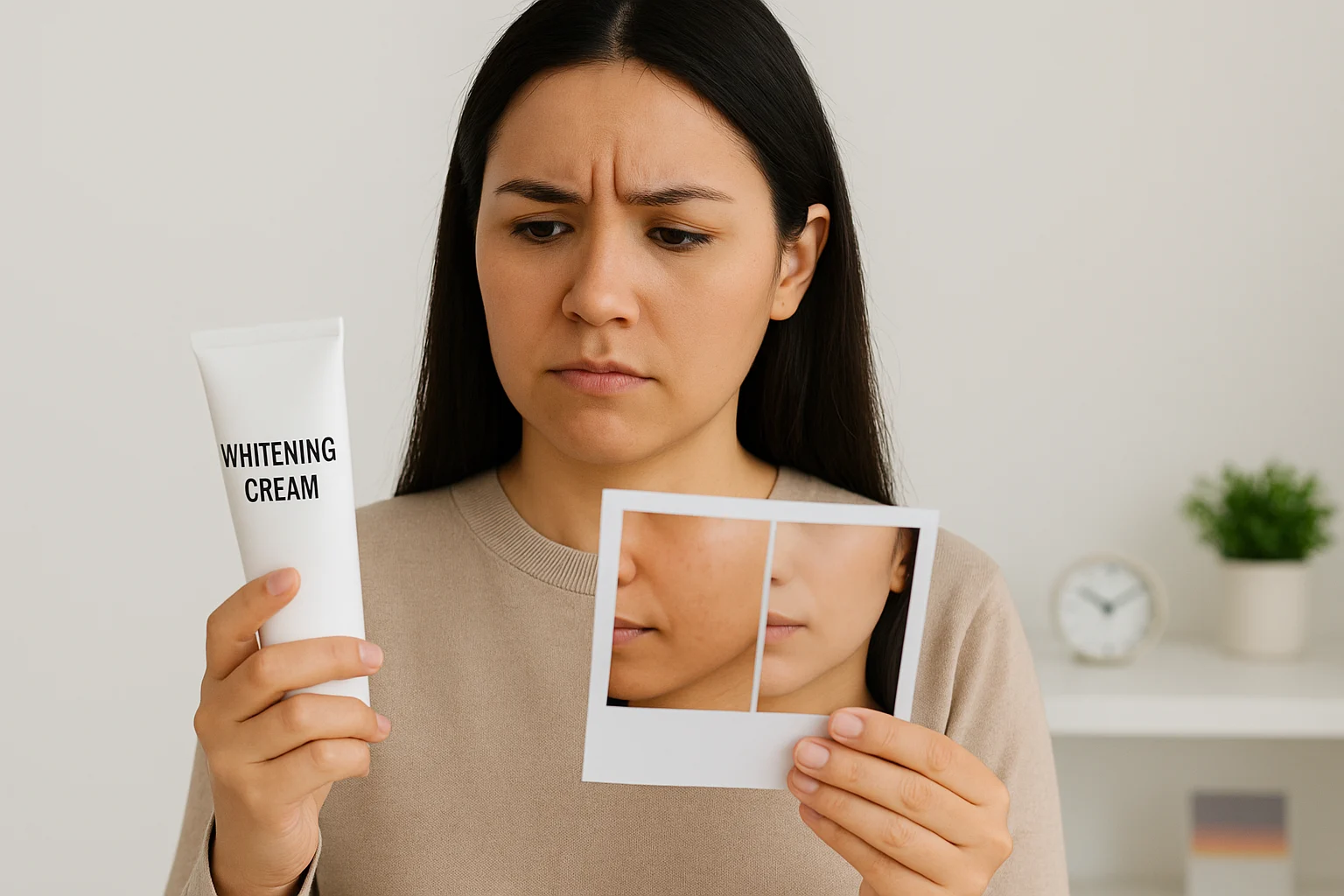You’ve seen the ads. They promise fairer, lighter, glowing skin. But there’s one thing those labels never tell you straight — does the effect last, or is it just a quick fix?
How Whitening Creams Work (and What Affects Their Results)
Whitening creams slow down melanin, the pigment that gives skin its colour. The results depend on your skin, habits, and how long you use the cream.
Melanin is what makes your skin dark. Some people have more, some have less. Whitening creams don’t bleach your skin — they block your body’s steps to produce melanin. That’s how spots, scars, and tan lines fade.
The most common ingredients that do this are:
- Hydroquinone (used in short-term treatments)
- Kojic acid (comes from mushrooms and rice fermentation)
- Vitamin C (helps fade spots and makes skin look brighter)
- Niacinamide (a form of vitamin B3 that helps even out tone)
But here’s where things get tricky. These creams work slowly, and the change is often mild. You might need weeks to see a slight difference. And that difference only lasts if you use the cream correctly.
Now let’s talk about the factors that affect how long it works.
Skin type and tone
Darker skin has more active pigment cells, which means it takes longer to lighten and is more likely to bounce back to its original tone if you stop treatment. People with lighter skin may see quicker changes, but the cream doesn’t change their skin forever.
How consistent you are
Using a whitening cream once in a while won’t do much. You’ve got to stick with it — every day, at the same time, clean skin. Stop halfway, and the spots come right back.
Your time in the sun
UV rays wake up your pigment cells. That’s why tanning happens. You’re wasting your time if you don’t wear sunscreen while using whitening creams. Sunlight cancels out the work your cream is trying to do.
Skin issues you already have
If you’ve got melasma, acne scars, or dark patches from eczema, whitening creams may help fade them. But if you stop too soon or use the wrong product, you’ll irritate your skin and make it worse.
Do Whitening Creams Last?
Whitening creams don’t give permanent results. If you stop using them or skip sunscreen, your skin will return to its usual tone.
Most people see short-term changes after 4 to 8 weeks, including brighter skin, lighter spots, and smoother tone. But these changes need upkeep. Once you stop, the pigment cells wake up again.
The more sun exposure you get, the faster your skin returns to its original shade. And if your cream only blocks pigment but does not fix the cause (like acne or hormones), the dark areas will come back, too.
Some creams claim to give “permanent whitening.” That’s false advertising. No cream can remove melanin from your skin for good. Your skin is living tissue. It keeps repairing and renewing itself. Sooner or later, it brings back the colour meant to be there.
Even dermatologist-assisted treatments, like chemical peels or laser sessions, need follow-up care. If a doctor can’t promise permanent change, no over-the-counter cream can, either.
Safe Alternatives to Whitening Creams
If you’re tired of waiting for results or worried about side effects, you’ve got other options. But just like with creams, these aren’t magic. They help, but only when done the right way.
Professional treatments
Dermatologists offer peels, lasers, and micro needling. These work deeper than creams and can target dark spots, acne scars, or sun damage. However, they still don’t make your skin permanently lighter, and you’ll need multiple sessions.
Lasers can be risky on dark skin. If the wrong type is used, it can cause burns or darker skin. Always go to someone trained in treating darker tones.
Natural brighteners
Some people use lemon juice, turmeric, or aloe vera. These have mild effects. They won’t bleach your skin, but they might help with glow and tone. Always patch test natural stuff, too. Just because it’s from your kitchen doesn’t mean it can’t hurt.
Healthy habits that support your skin
Eat better, drink more water, sleep enough, wash your face correctly, and use sunscreen daily. These things don’t change your skin tone but help your skin look better overall.
And don’t keep switching products every week. Give your skin time to react. If it gets red, itchy, or worse, stop immediately and talk to a doctor.
Table: Comparison of Whitening Options
| Option | Works On | Long-Term Effect | Risk Level |
|---|---|---|---|
| Whitening creams | Spots, uneven tone | Needs daily use | Medium |
| Laser or peels | Scars, sun damage | Needs upkeep | High |
| Natural ingredients | Dull skin | Mild effect | Low |
| Healthy lifestyle | Overall appearance | Maintains glow | Low |
Final Thoughts
Skin whitening creams aren’t permanent. They work only if you keep using them, protect your skin, and choose the right formula. Once you stop or slip up, your skin returns to its natural tone — that’s how skin works.
You might be disappointed if you’re looking for fast, long-term results. But if you treat it like skincare, not a magic fix, you’ll have better luck.
Want lighter skin forever? That’s not possible. But having healthy, even-toned skin? That’s something you can work on — and it’s worth way more than chasing a shade you weren’t born with.

